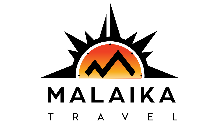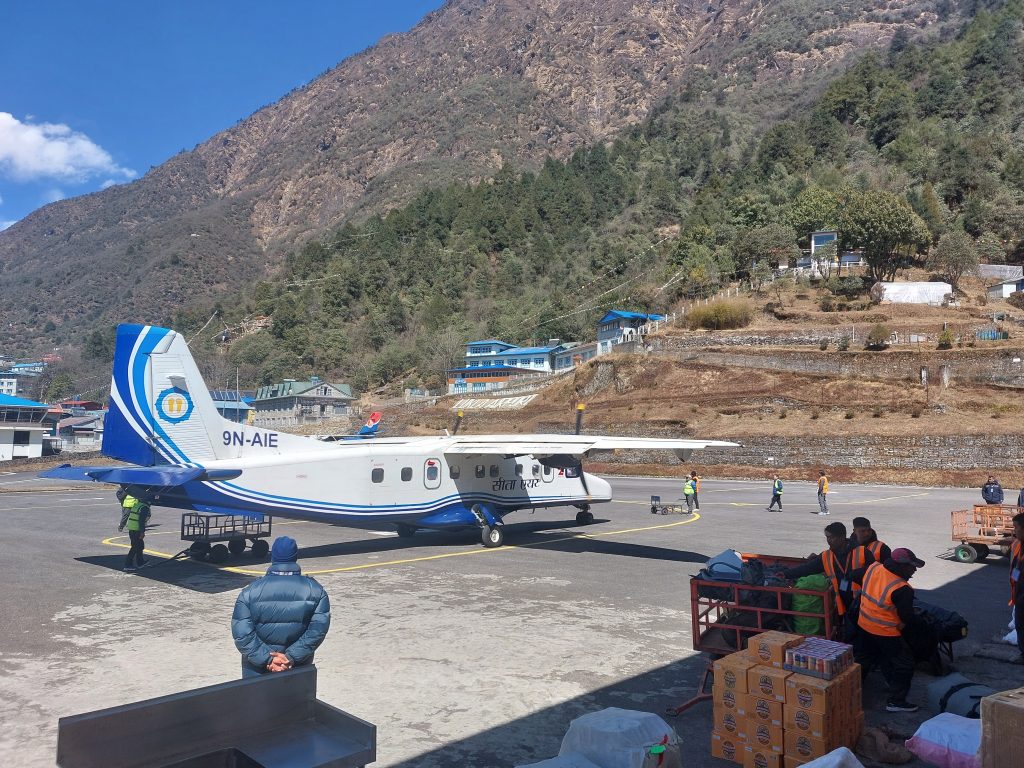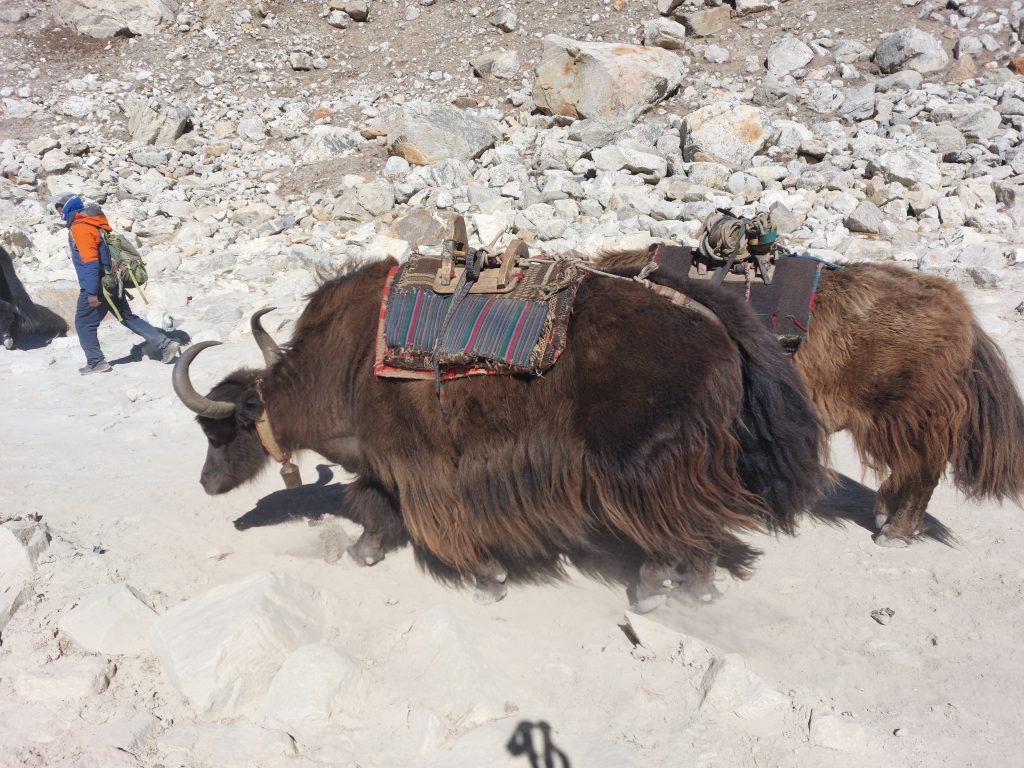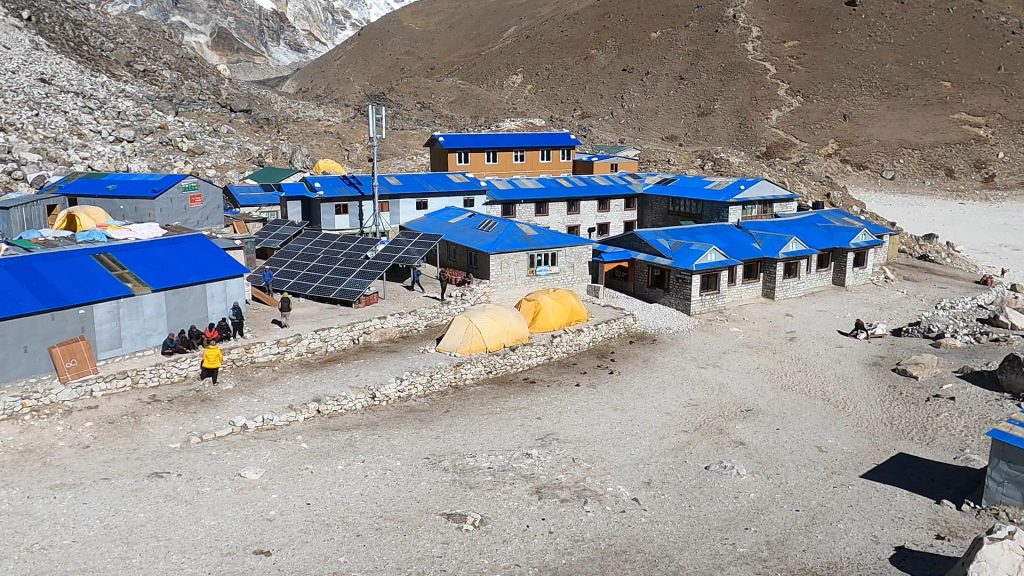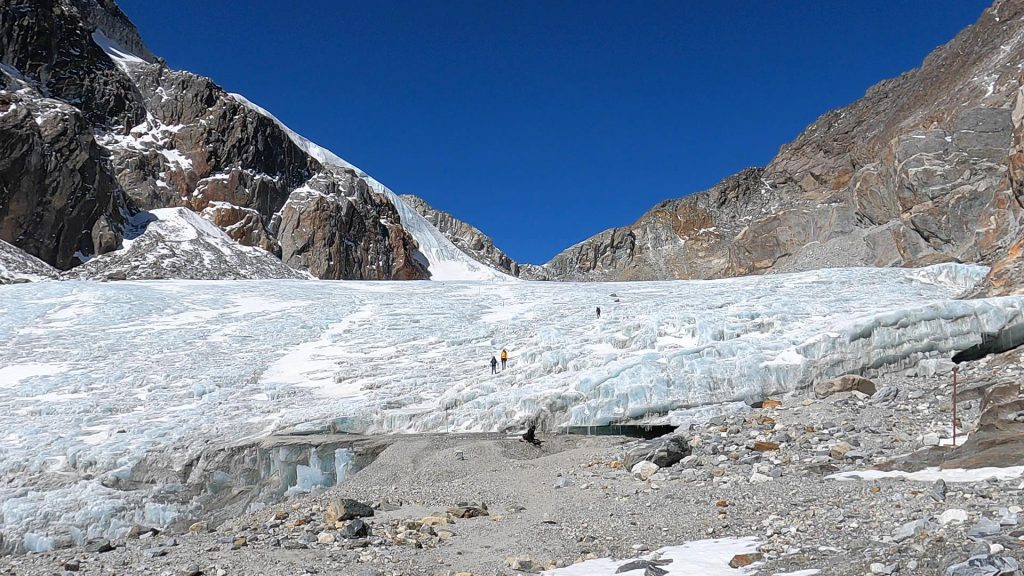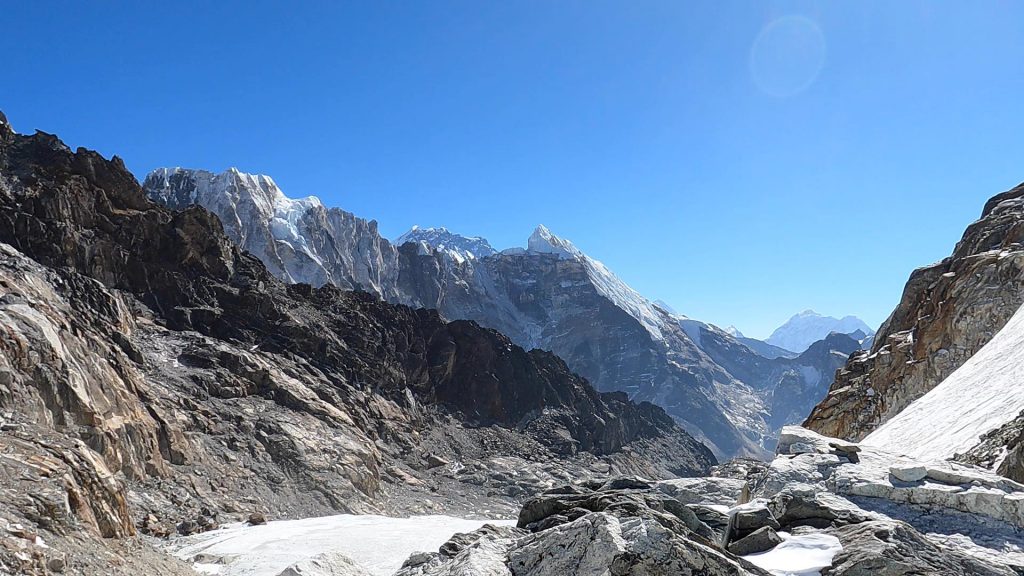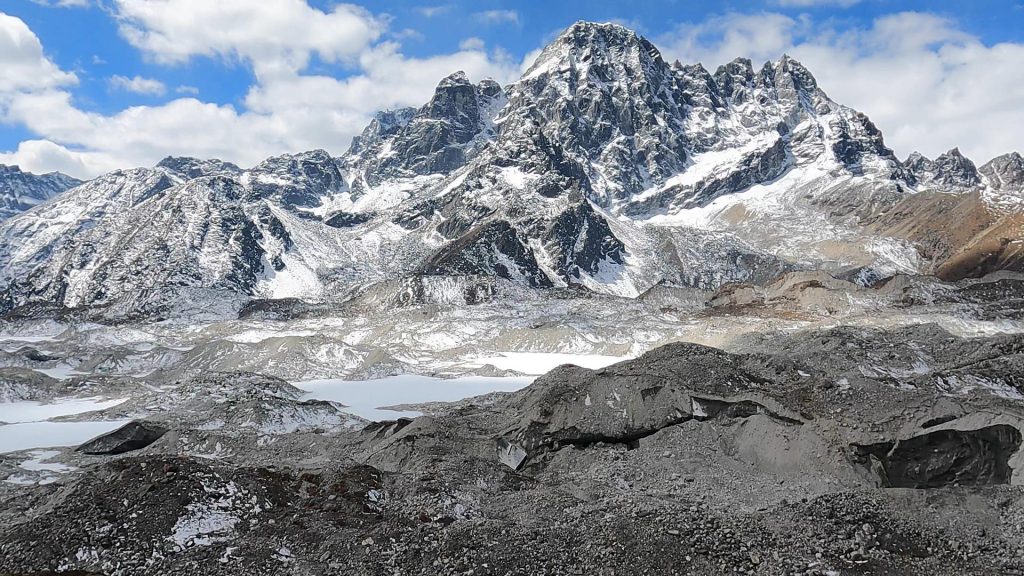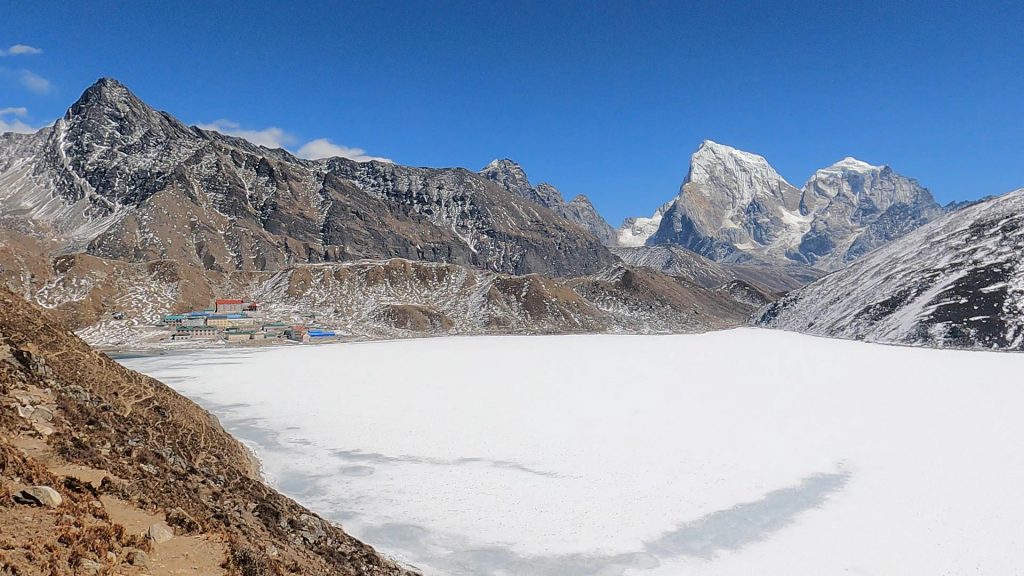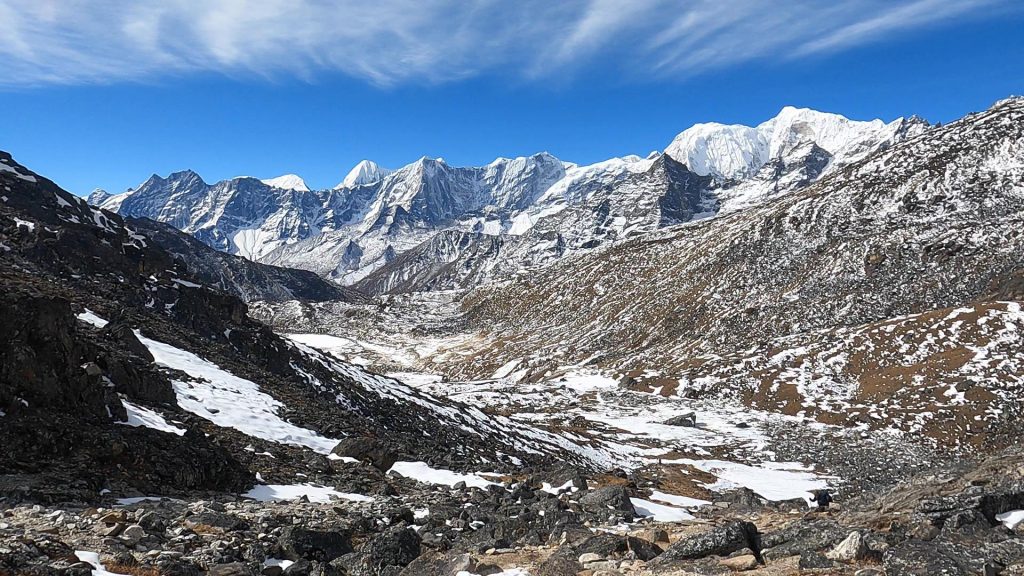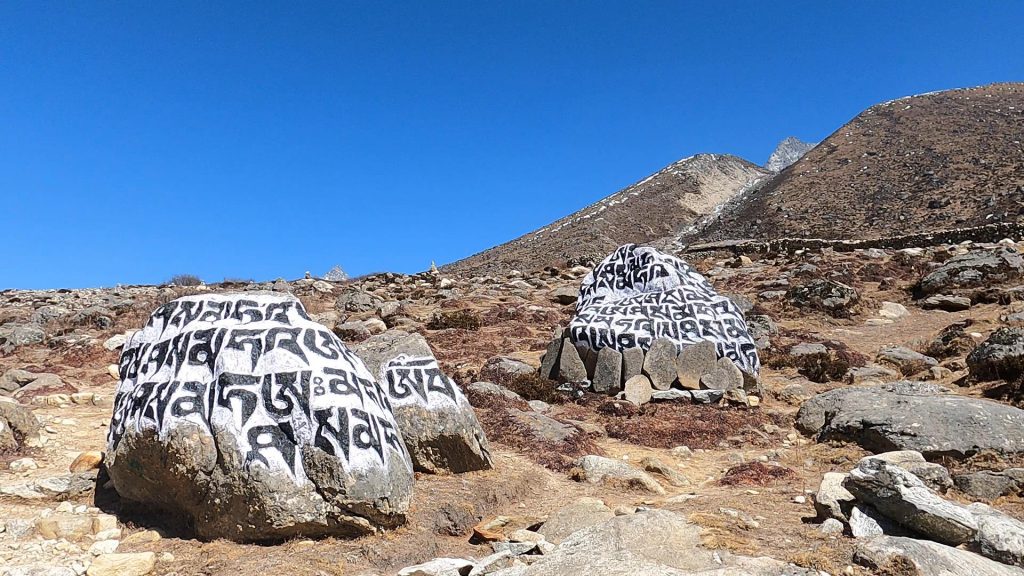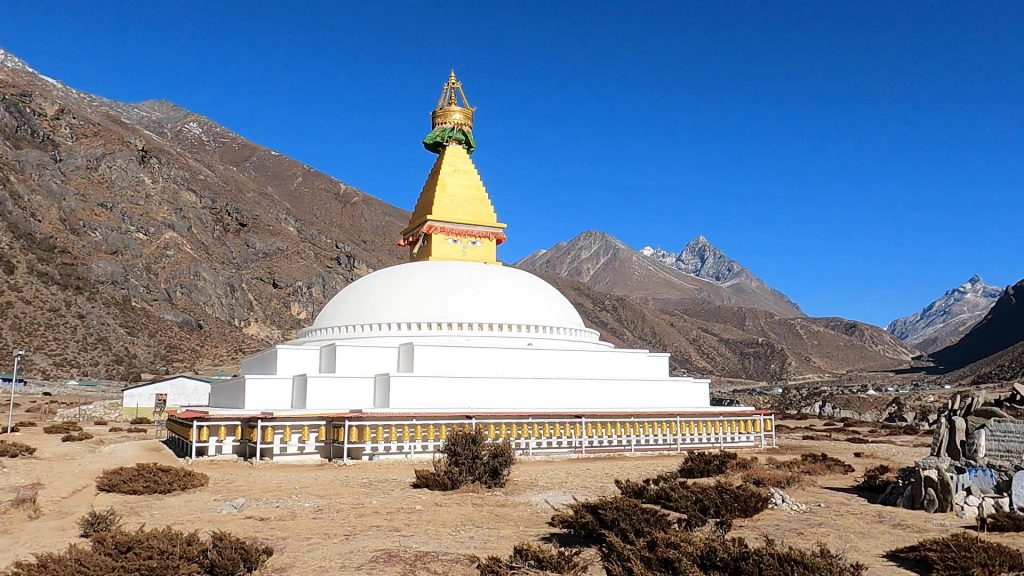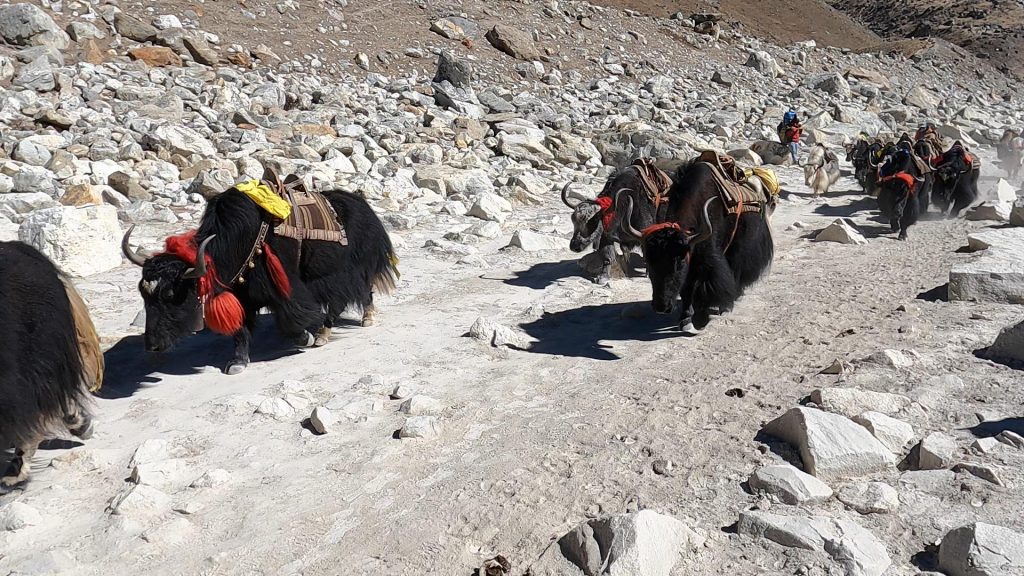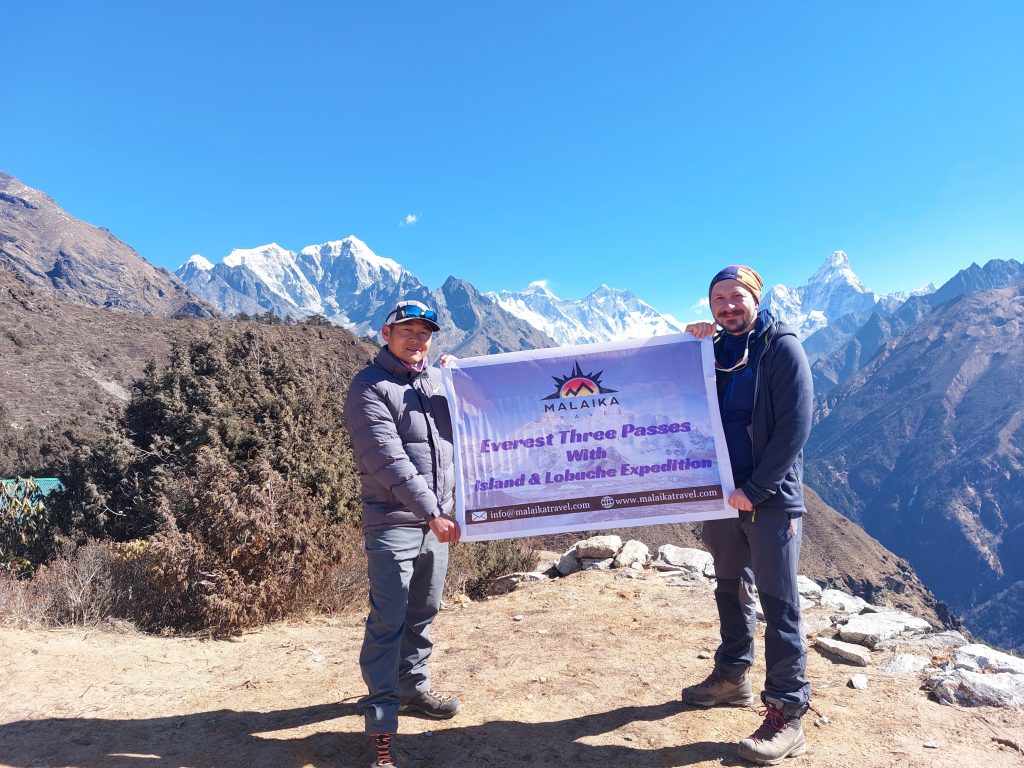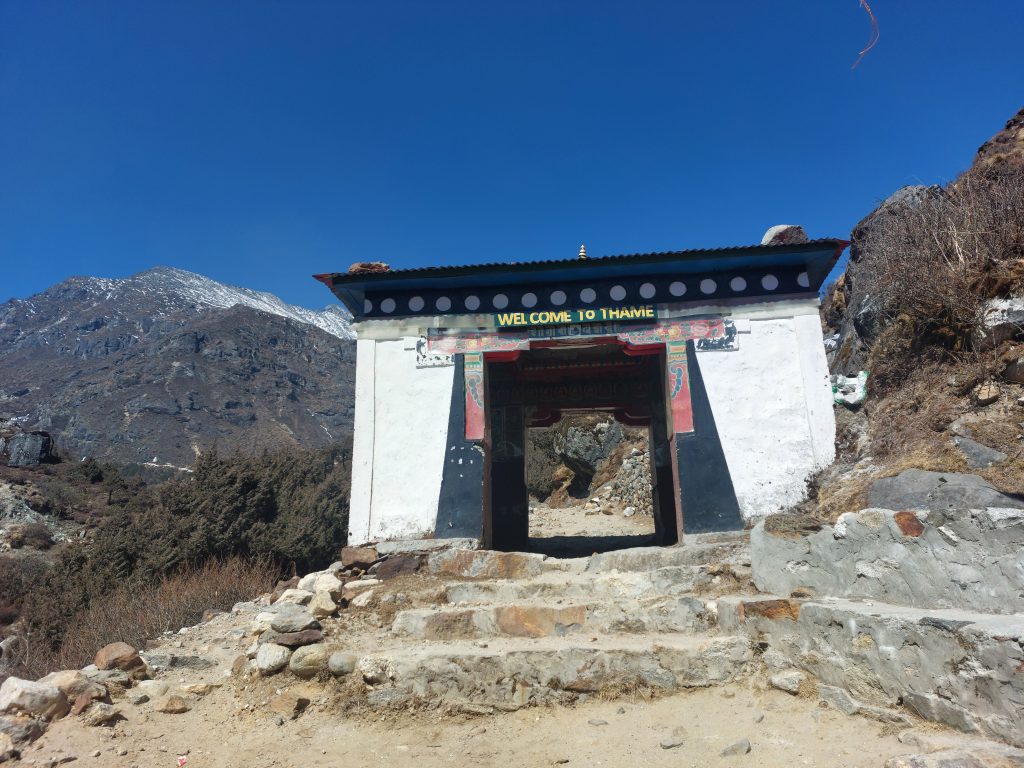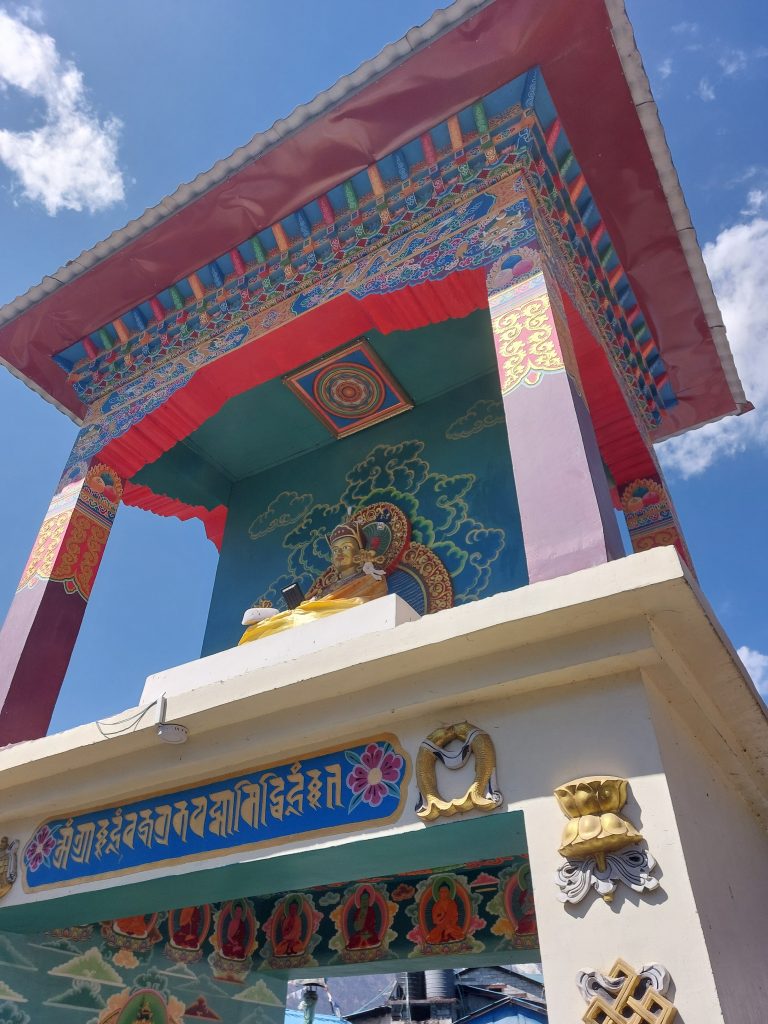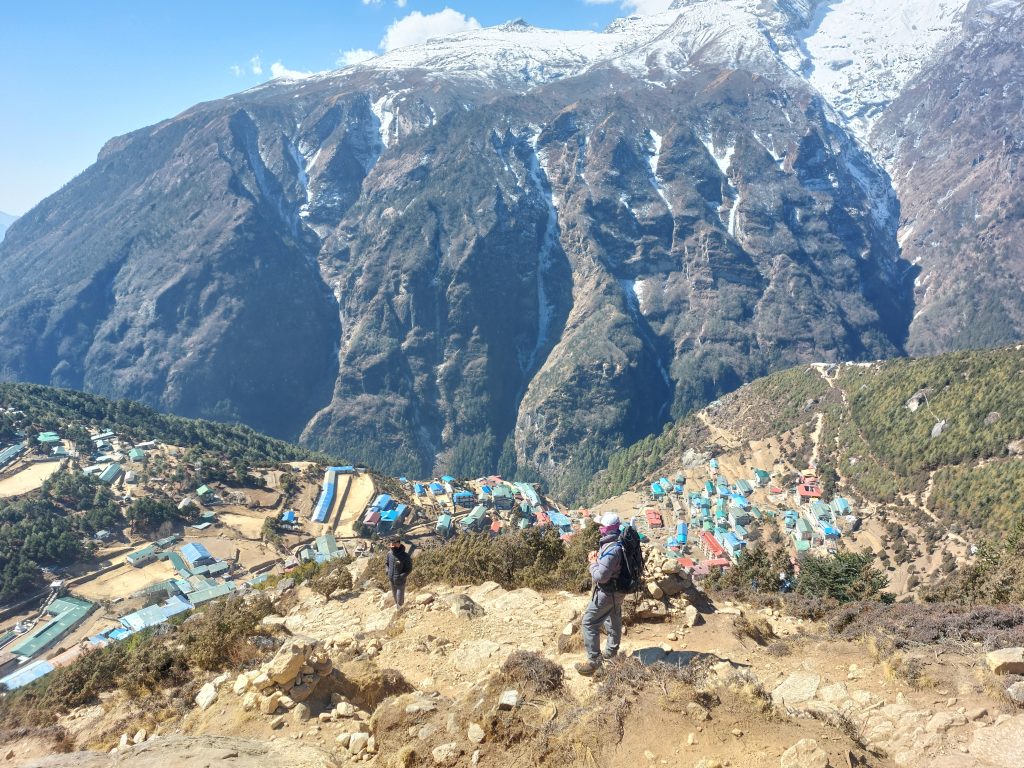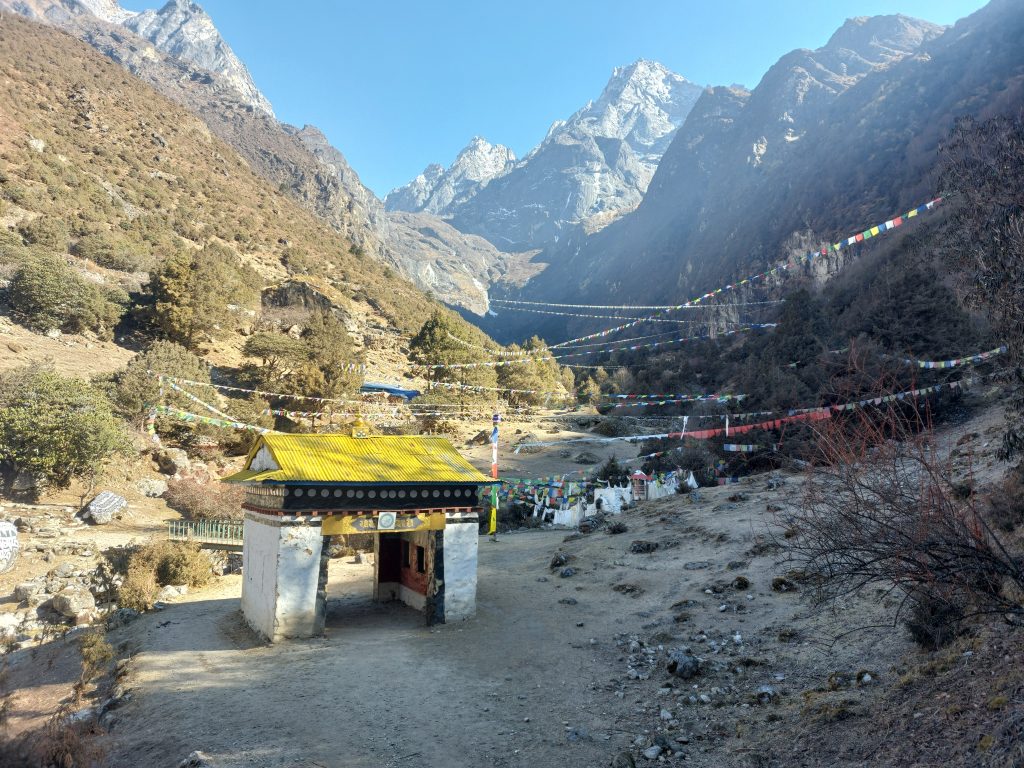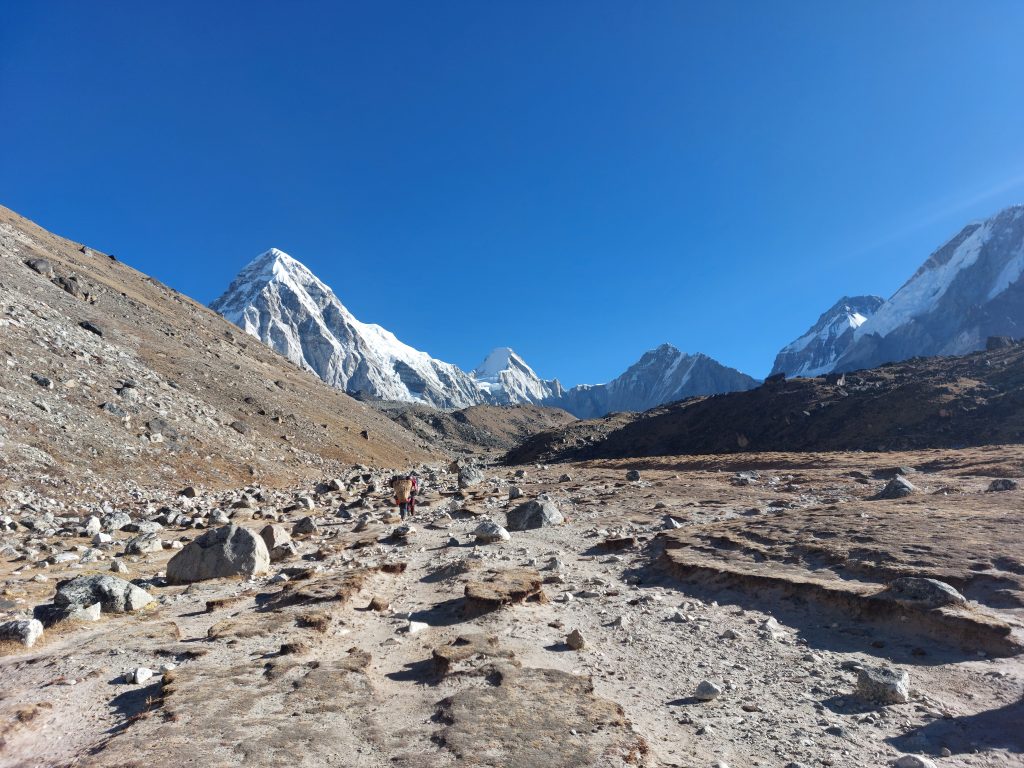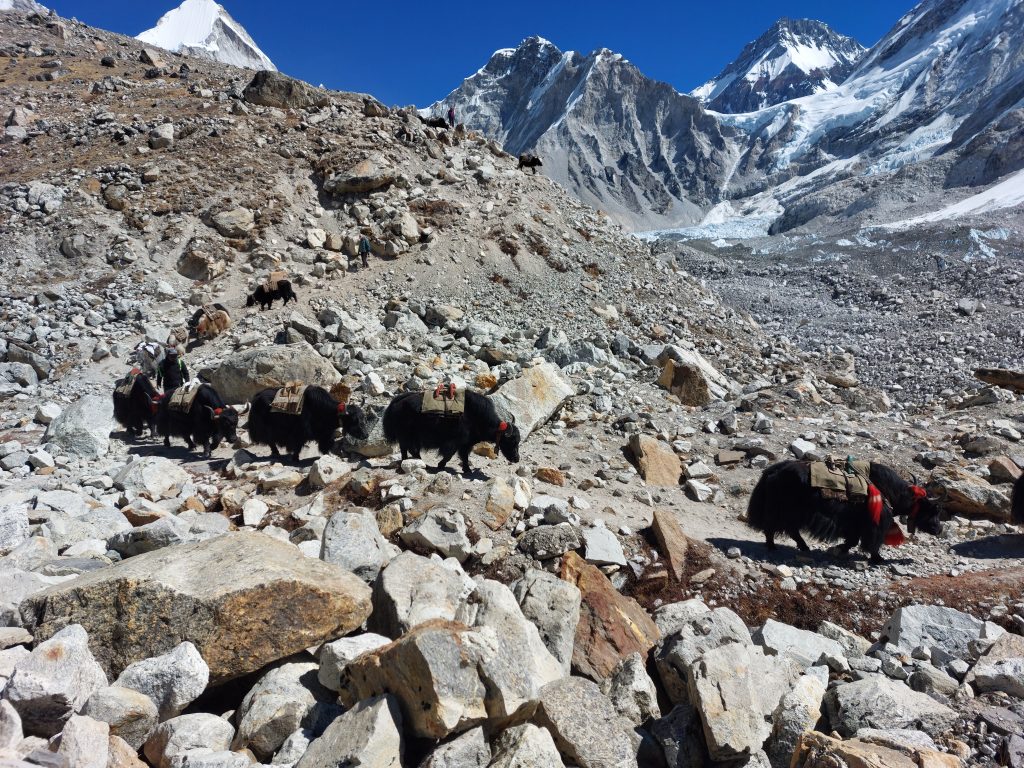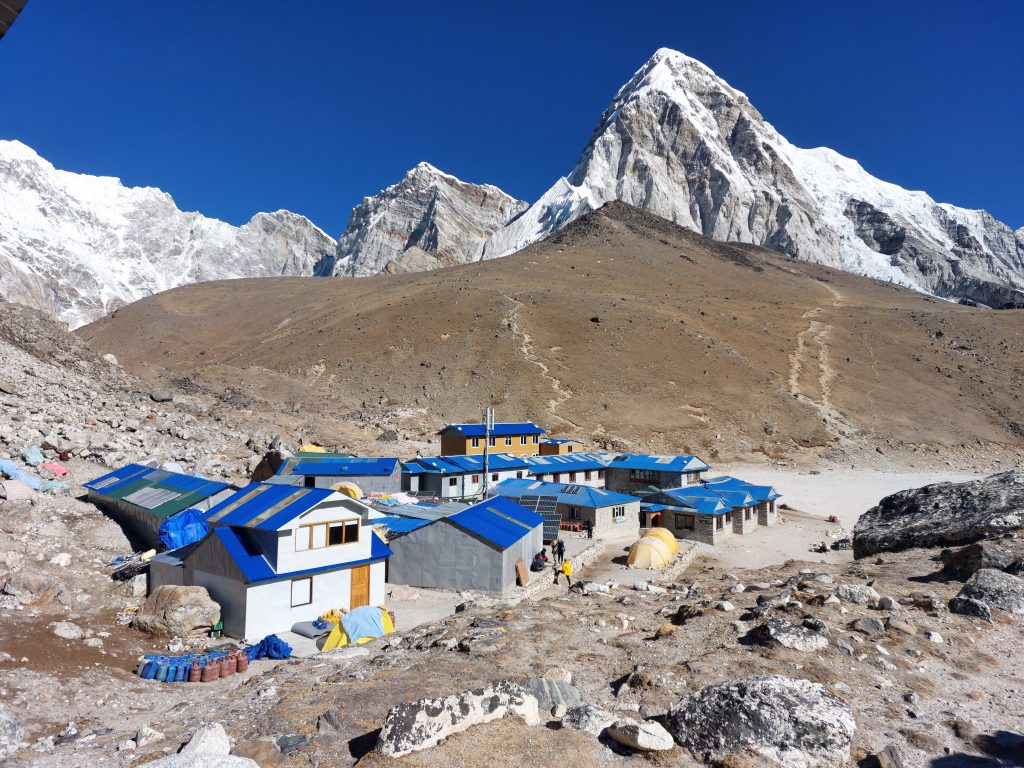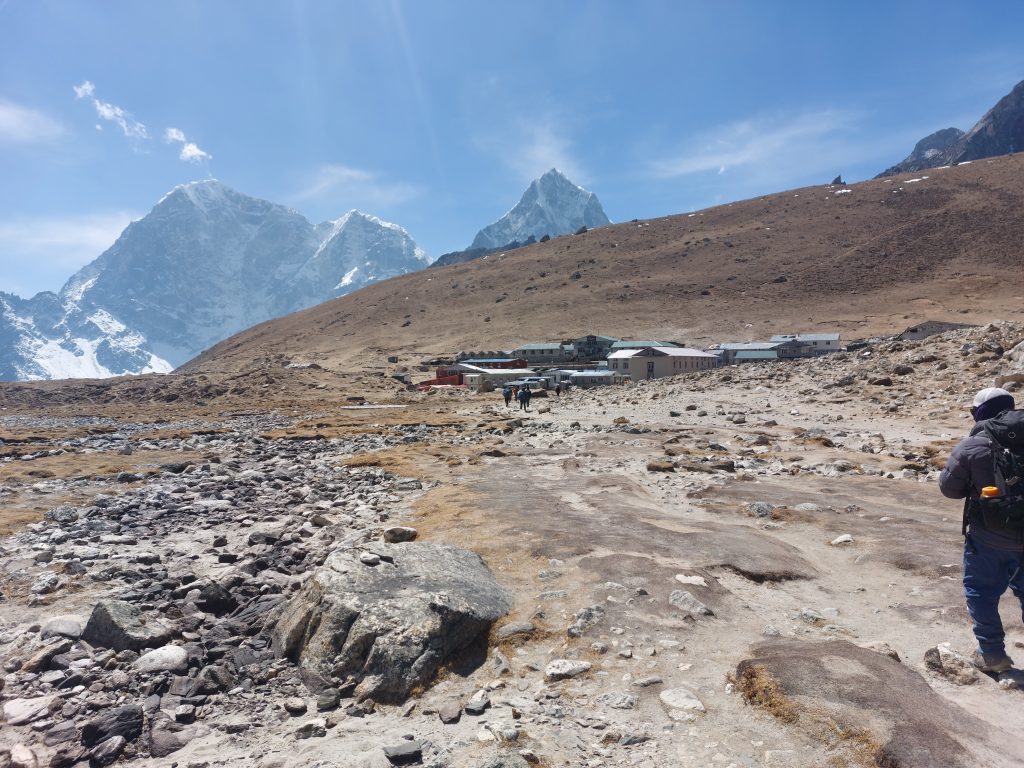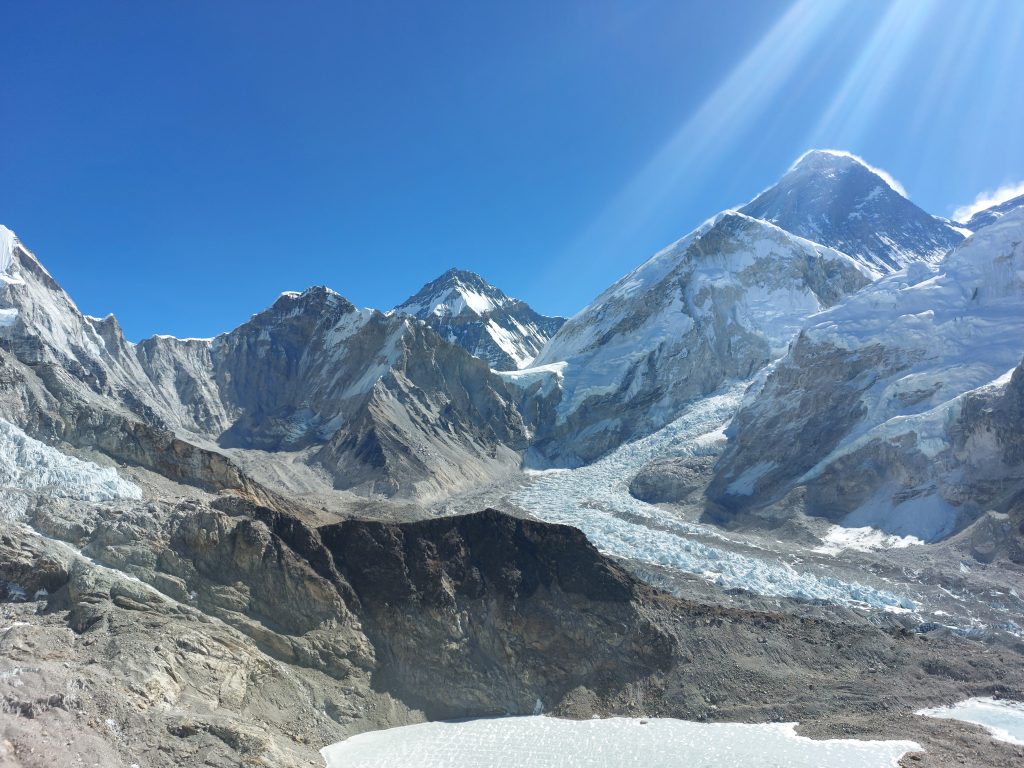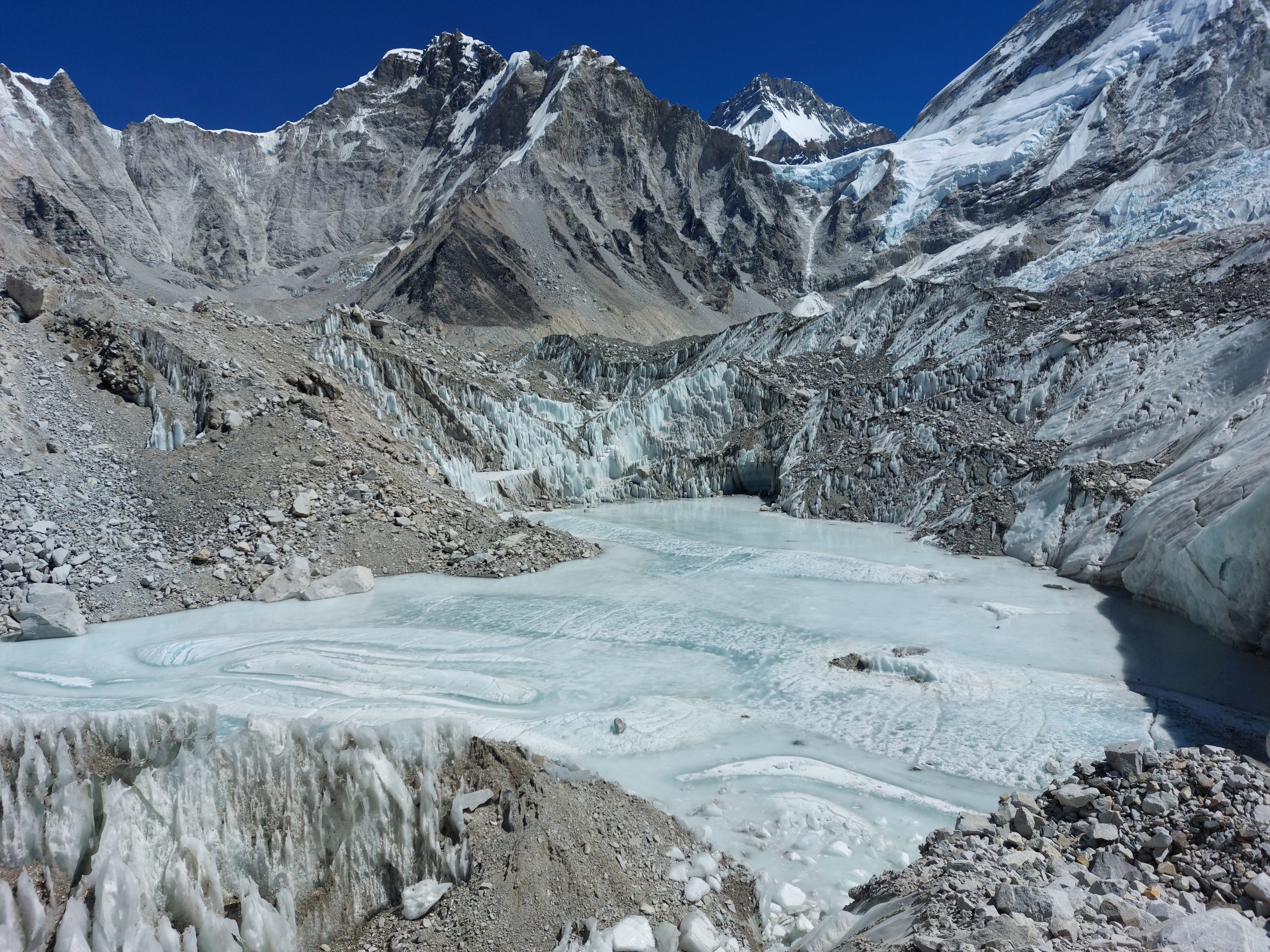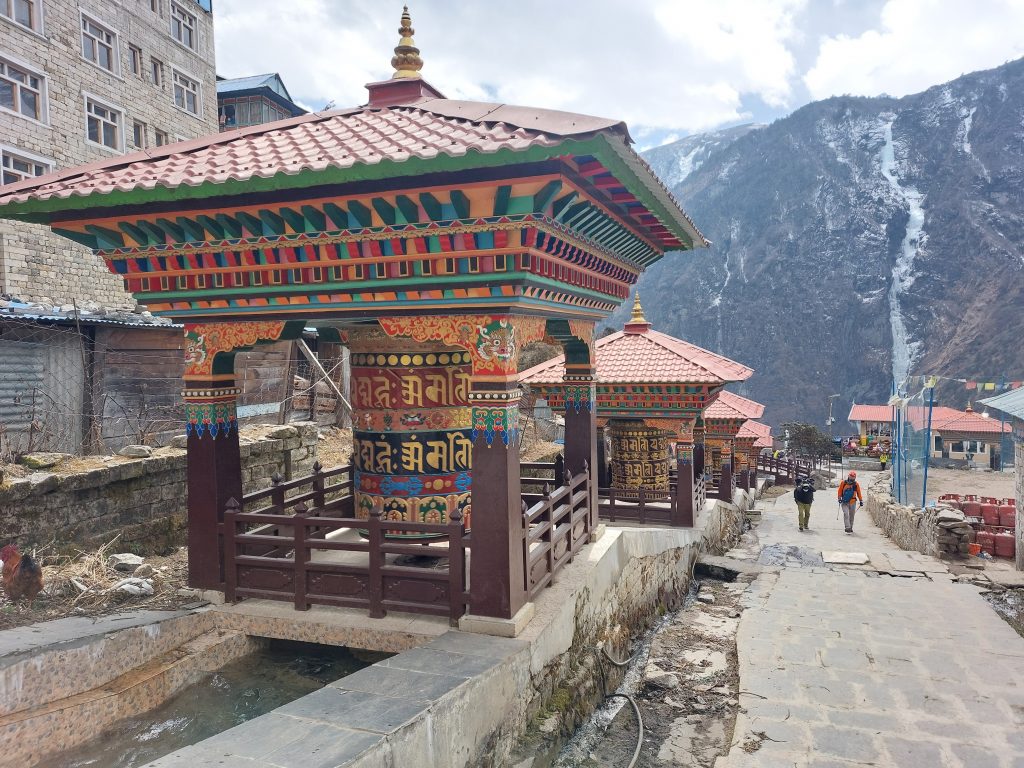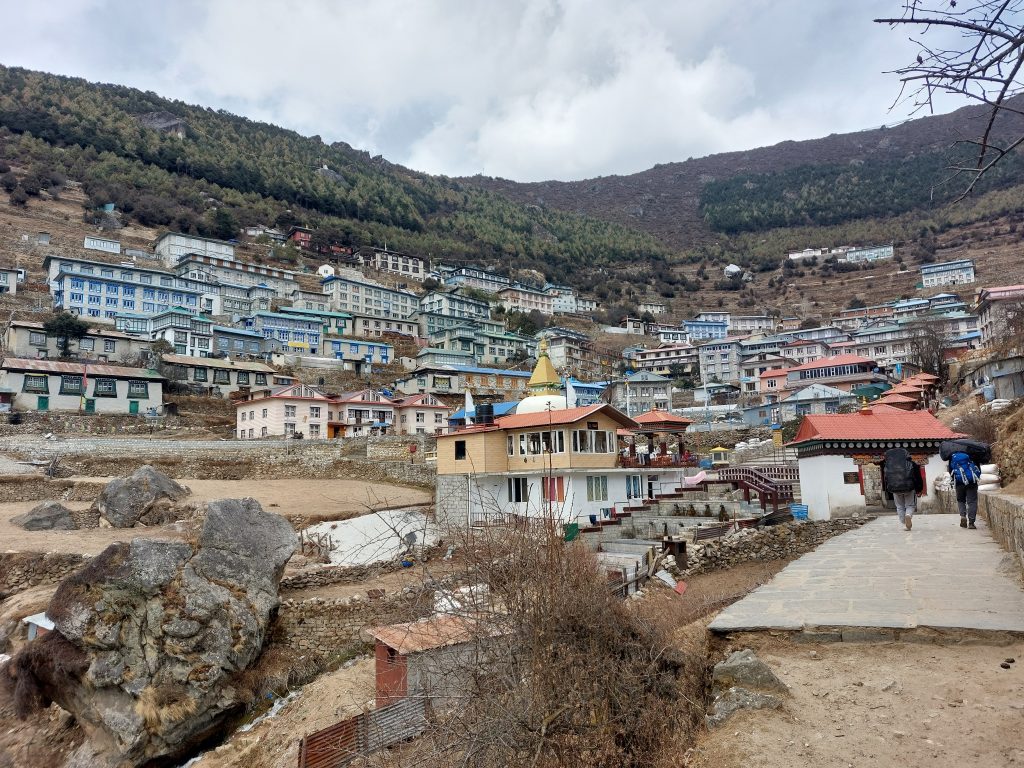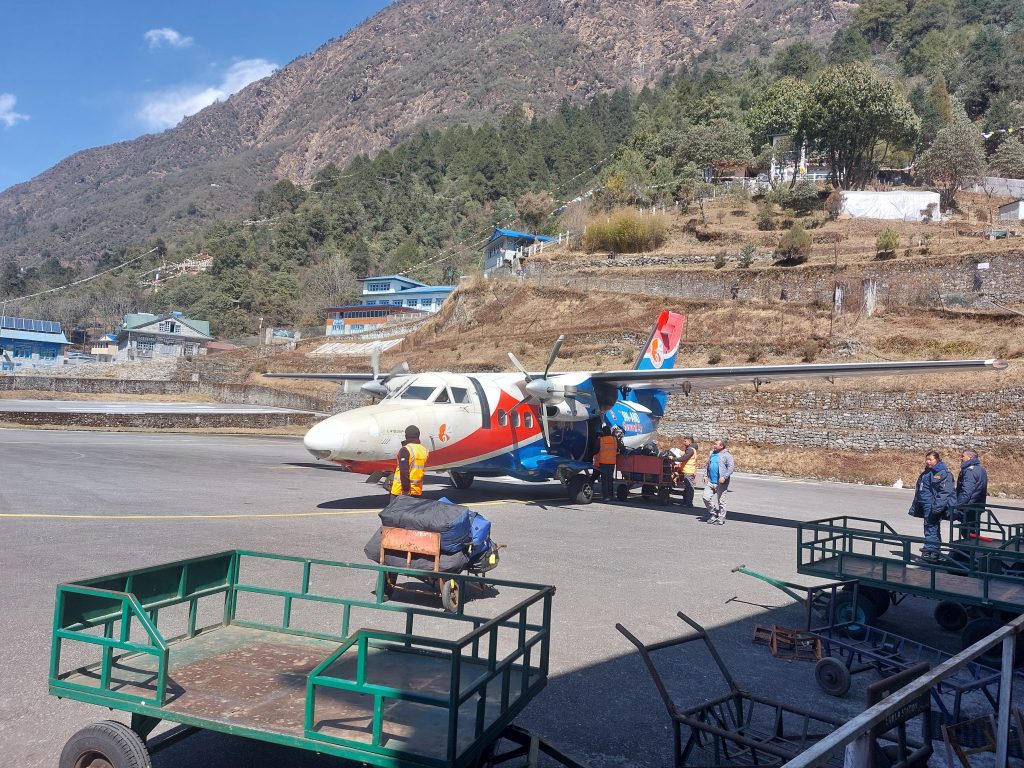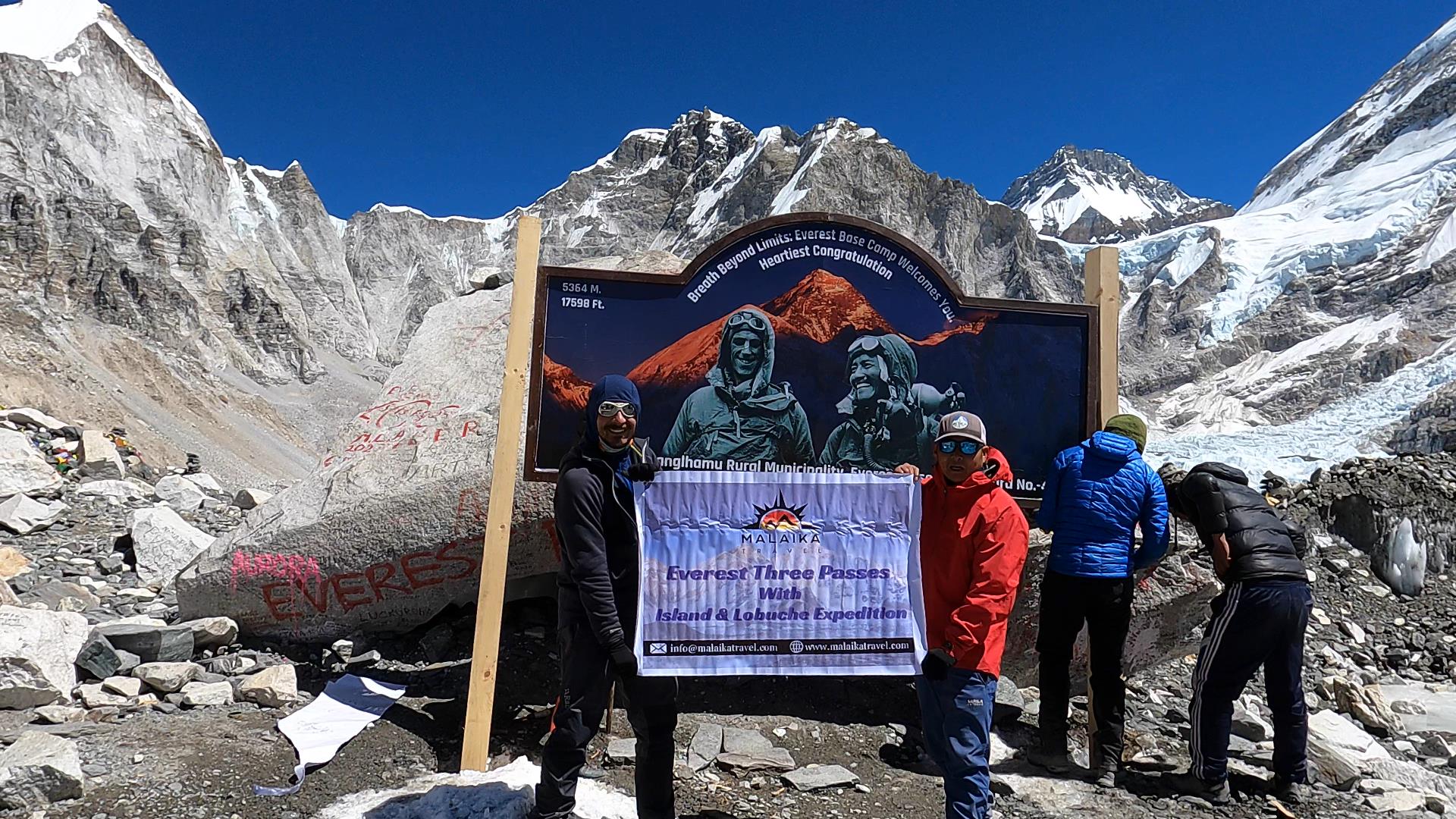
Everest Base Camp
Everest Base Camp Trekking
Overview
The Everest Base Camp (EBC) trek is a classic trip in the Everest region. The trek leads you to the heart of the Khumbu area, where you can feel the Sherpa hospitality and the culture of the Tibetan Buddhists. The EBC trek became popular after Tenzing Norgay and Edmund Hillary climbed Mount Everest with a trek through this trail in 1953. It has been turned into a tourist hub for trekkers and high Himalayan climbers. If you love nature and want to be in the picturesque Himalayan zone, be ready to face the adventure of Everest base camp trekking.
The EBC trek starts from the tiny airstrip of Lukla after a 35 min fly from Kathmandu. The Himalayan panoramas can be seen from the flight. Some of the features of this trek are awesome landscapes, dense alpine woods of rhododendron, birch, juniper and others. As well as this, rare wild animals can be found in the Sagarmatha National Park. Namche Bazaar, Khumjung and Tengbuche are some of the spiritual places, where you can look at the ancient Everest monasteries, Chhortens and Sherpa rituals. There is also the beautiful natural scenery of the white peaks such as Ama Dablam, Lhotse, Nuptse, Everest, Island Peak, Thamserku and the neighbouring peaks to fascinate you. Namche and Dingbuche are the places we will take a rest and have our acclimatization days. From Lobuche, the trek goes up to EBC and then you trek down to Gorakshep. After, you hike to Kalapatthar to view the golden sunrise. The trek goes back all the way down to Lukla where you will fly back to Kathmandu.
To enjoy the Everest base camp trek as much as you can, you need to go with a trustworthy, good company- like Malaika Travel. We are always dedicated to offer you a perfect trip with a customized trekking itinerary. Spring and autumn are best trekking seasons in Everest.
Malaika Travel is a leading peak operator in Nepal. We are experienced in arranging Island Peak climbs along with the Everest Base Camp trek. Due to bad weather, it can sometimes happen that the ascents are postponed, so we recommend having a few free days.
Day to day itinerary
Day 1: Arrive in Kathmandu
After landing at the Tribhuvan International Airport in Kathmandu from your designated destination, you will be greeted at the arrival gate by a representative of the travel company who will then transfer you to your hotel. If you have any spare time, you can explore the city or relax at the hotel to overcome your jet lag. Overnight at Hotel.
Day 2: Familiarisation walk & trek preparation day
Today after breakfast, you will meet with the guide and walk around Thamel to familiarise yourself with it. Today, we will also examine your trekking gear and help you pack for the trek. In the evening, there will be a group discussion for you to attend to discuss the upcoming trekking plans. Overnight at Hotel.
Day 3: Fly to Lukla (35 min) and trek to Phakding (2652m) [3-4 hrs]
Ideally, we will arrive in Lukla between 7 – 9 am, so that you can have breakfast and start walking mostly downhill for a relaxed walk on your first day. The hike should take 3-5 hours, depending on if you’re travelling to Phakding or Monjo. If you go to Phakding (2,650m/8,694ft) it will be about 3 hours and if you are going to Monjo (2,850m/9,350ft) it will take approximately 5 hours. If you are going to Monjo, you will have lunch in Phakding and then continue going to Monjo until you arrive in the afternoon. When you arrive, you will check into your room and spend the rest of the afternoon relaxing and starting the acclimatization process. Make sure you stay well hydrated; drinking 3 to 4 litres of water a day is essential all the way throughout the trek. 9km/ 5.6 miles to Phakding or 13km/ 8.8 miles to Monjo.
Day 4: Phakding to Namche Bazaar (3440m) [6-7 hrs]
For the first couple of hours, you will get to cross some of the famous suspension bridges, while gradually moving uphill towards the entrance of Sagarmatha National Park, the official entrance to the Everest Region. You then continue downhill for a short time before it levels out to flat ground and mixed terrain. The trail then follows the river to the final high suspension bridge before you begin the long ‘Namche Hill’ trek, which can take 2 hours, to reach the Sherpa village of Namche Bazaar. Today’s trek is usually 6 hours long with plenty of breaks and time to rest along the way. The distance from Phakding to Namche is 11.3 km/ 7.02 miles.
Day 5: Acclimatization day at Namche Bazaar
Today is one of your acclimatization trek days. When you trek behind Namche Bazaar, the trail is quite steep and you can feel the lack of oxygen as you ascend 460m/1,509ft to Shangbouche Airport, then cross the runway and head another 100m/ 328ft up to Shangbouche Hill at 3,900m/ 12,795ft. We will enjoy the stunning views and relax for 30-45 minutes before returning back to Namche. This trek is an essential part of the acclimatization process and usually takes approximately 4 hours. 3km/ 1.8 miles.
Day 6: Namche to Tengbouche (3860m) [5-6 hrs]
Today we will hike towards Tengbouche, at 3,900m/ 12,795ft. After ascending out of Namche, the first 2 hours are just relaxed walking as you traverse the left hand side of the valley, high above the valley floor. The trail then descends down towards the river which is where we will stop for lunch. From here it will take 2 – 3 hours to hike up the long hill to the town of Tengbouche. This is a gradual but long ascent and the in total you will do about 5/6 hours of hiking today. 12km/ 7.5 miles.
Day 7: Tengbouche to Dingbouche (4400m) [5-6 hrs]
From Tengbouche, we will travel to Dingbouche, at 4,400m/ 14,436ft. The trail starts downhill and continues very gradually up and down hills before you cross the river and gradually head uphill towards Pangbouche for lunch (Pangbouche is one of the villages on the trail that suffered the most from the recent earthquakes), which usually takes 2-3 hours. From there it is a gradual uphill trek towards the Imja Valley overlooking Island Peak and then an hour later you’ll arrive in Dingbouche. The total trekking time today will be 5 to 6 hours. 12km/ 7.5 miles.
Day 8: Acclimatisation day
Today, we will spend another night in Dingbouche to help you with the acclimatization process. Here we will aim to reach the height of 4,900m/ 16,076ft, gaining 500m/1,640ft. This acclimatization trek should take approximately 3 hours. We will enjoy the views and rest for about 30-45 min at the high point before going back down for lunch and an afternoon of relaxation. 3km/ 1.86 miles and 500m/ 1,640ft of ascent and descent.
Day 9: Dingboche to Lobuche (4900m) [5-6 hrs]
From Dingbouche we will head to Lobuche, at 4828m. The trail heads back towards the Khumbu valley and continues on a long and slow trek across a beautiful elevated route towards Dugla, where we will stop for a while to eat lunch and rest. This usually takes 2 hours and after lunch, we will go from Dugla to Lobuche, which will take an additional 3 hours with plenty of rest stops. After stopping at Dugla we have a long uphill hike over the Thukla Pass where we will go by the Everest Memorial, before heading to Lobuche. We will be trekking for a total of 5 hours today. 12km/ 7.5 miles.
Day 10: Lobuche to Gorakshep-EBC – Gorakshep (5160m-5365m-5160m) [7-8 hrs]
Today we will travel from Lobuche to Gorak Shep at 5,160m. Today’s trek is very beautiful and unique. You’ll be crossing a lot of loose rock as well glacier moraine. The trail into Gorak Shep takes approximately 3 hours. We will have lunch there before walking an additional 3 hours to reach Everest Base Camp, where we will spend some time enjoying the base camp of the world’s highest mountain! The hike back to Gorak Shep is another 2 hours, bringing this long day to an end after a total of 7 or 8 hours of hiking. Today is a very challenging day for most people. 10km/ 6.2 miles.
Day 11: Hike to Kalapatthar, trek down to Pheriche (5555m-4358m) [7-8 hrs]
After a good night’s rest in Gorak Shep, those who feel ready and able will wake up very early and hike up Kala Phattar to see the sun rise over Everest. This is a difficult 3 hour uphill hike which is hard work, but it’s well worth it for the amazing views of Everest in the early morning. Once you return back to Gorak Shep, you will have breakfast and return all the way back to Pheriche at 4358m. This takes 4 hours, making the total amount of time spent walking today walking 7 hours. 18km/ 11.2 miles.
Day 12: Trek down to Namche Bazaar (3440m) [7-8 hrs]
Today we will trek from Pheriche back to Namche Bazaar. Today is another long day and can take approximately 7 to 9 hours. As you are heading downhill, towards lower levels of altitude, you can be quicker than you were on the way up. When you get back to Namche you will get to enjoy the delights at the Namche Bakery or play a few rounds of pool at Cafe Danfe before we rest to prepare us for the long walk back to Lukla tomorrow. 22km/ 13.7 miles.
Day 13: Trek down to Lukla (2800m) [7-8 hrs]
This long day can be one of the hardest as your body is tired after the trek. You start the day going back down Namche Hill and then you’ll do the long journey back to Lukla. You will pass Phakding before starting the last part of the hike into Lukla where we will sleep for one more night. Today’s trek can take 7 to 8 hours. 21km/ 13 miles .
Day 14: Fly back to Kathmandu (1300m) [35 min flight]
Today your legs get a break as you only have to trek to Lukla Airport and fly back to Kathmandu, which is only about 10 minutes of walking. Overnight at Kathmandu Hotel.
Day 15: Departure to the airport
Today, we will send you to the airport approximately 3 hours before your scheduled flight.
